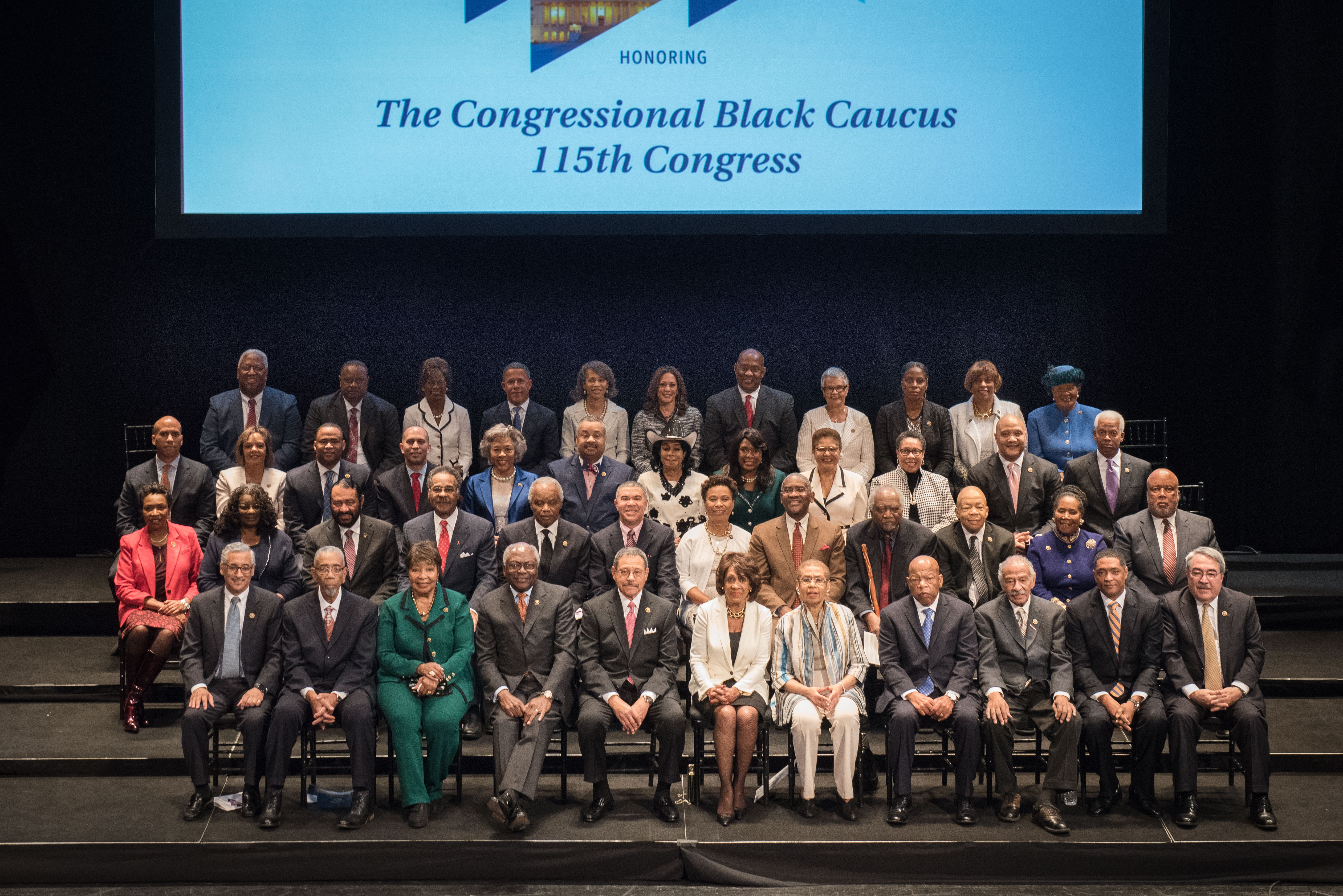Nearly one month after the November midterm elections, Black lawmakers on Capitol Hill have gained major leadership roles that will boost their collective power when the 116
th Congress commences in January 2019.
For the first time, two African American lawmakers will make history by holding top leadership positions in Congress at the same time. That’s not all: African American women will play key leadership roles as the Congressional Black Caucus (CBC) expands its ranks.
Last week, Democrats in the House of Representatives gave speeches and held internal elections conducted by secret ballot. Rep. James E. Clyburn (D-SC) was elected Majority Whip of the Democratic Caucus, the number three leadership position. Rep. Hakeem Jeffries (D-NY) was elected chair of the Caucus, the number five spot.
In a separate election, members of the CBC voted Rep. Karen Bass (D-CA) their new chairwoman for the incoming Congress. Rep. Joyce Beatty (D-OH) and Brenda Lawrence (D- MI) were elected Vice Chair and 2
nd Vice Chair, respectively. Additionally, Reps. Maxine Waters (D-CA), Eddie Bernice Johnson (D-TX), Marcia Fudge (D-OH) and Barbara Lee (D-CA) are among the CBC members who will chair or co-chair at least five House Committees and more than two dozen House Subcommittees.
Reflecting on the trajectory of African Americans in Congress, the CBC’s current chairman, Rep. Cedric L. Richmond (D-LA), recalled the words of George Henry White, a Black North Carolina Congressman who served from 1897 to 1901. White didn’t seek a third term amid the rise of Jim Crow-era politics that kept African American lawmakers out of Congress for nearly three decades.
“[White] said in his famous farewell address, ‘This is perhaps the Negroes’ temporary farewell to the American Congress but let me say, Phoenix-like he will rise up some day and come again.’”
The CBC—established in 1971 by lawmakers who include the late Congresswoman Shirley Chisholm—will grow to 55 members, an increase of nine new representatives. It will be the first time ever that the body will have more than 50 members, making it one of the largest sitting Caucuses in the 116
th Congress.
Bass, elected to the House in 2010, vows to continue the CBC’s legislative work around issues such as criminal justice reform, education, voting rights, and more.
“I am absolutely humbled by the support I’ve received from my colleagues,” Bass told ESSENCE in a statement. “Chairman Richmond has done an outstanding job in leading this group and I will be honored to receive the gavel from him in January.”
Bass, who will become the new chair of the Subcommittee on Africa, Global Health, Global Human Rights and International Organizations, is a lawyer who also serves on the House Committee on the Judiciary. In that role, she vowed to “push for criminal justice reform and hold the Department of Justice and the rest of the Trump administration accountable for their conduct.”
The closed door elections come weeks after midterms that saw a record number of women elected to Congress, and a diverse slate of candidates gain victories across country. Democrats picked up 40 seats to regain majority control of the House, while Republicans gained two seats and held onto the Senate majority.
Senate Democratic Leader, Chuck Schumer (D-NY), told ESSENCE in a statement that “thanks to an inspirational surge in grassroots energy channeled through the Democratic Party, the women and men walking the corridors of power are beginning to look more like the nation they represent, and that is a very good thing.”
“Democrats had a historic Fall,” he continued. “More women and men of color are coming to Congress. More ballots were cast for this diverse Democratic team than ever before. Multiple states elected African American women, Muslim women, Native American women, and Latinas. We welcome these new, diverse voices and will be proud to work alongside them to get things done for the American people.”
While the incoming Congress is decidedly more diverse, the midterm election loss of Rep. Mia Love (R-UT) means the Republican party has no Black women in Congress. Moreover, no African American women are serving in Caucus leadership roles in the Democratic party, despite Black women being a key voting bloc.
California Congresswoman Lee ran against Jeffries for the House Democratic Caucus Chair position, and while he prevailed, the vote was close: 123 to 113.
Richmond had words of praise for both lawmakers. Lee is a social worker turned progressive legislator who was the lone member of Congress to vote against the Iraq War; Jeffries, a lawyer and member of the House Judiciary Committee, is considered a rising political star.
“When Congresswoman Barbara Lee and Congressman Hakeem Jeffries articulated to our colleagues why they were the best candidate for Democratic Caucus chair, it was one of the best displays of black brilliance that I have seen in a long time. The unfortunate part of their race against each other was that one of them had to lose,” Richmond said.
In a statement on her website, Lee congratulated Jeffries “on a hard-fought race” and said she looked forward to working with him to advance “a progressive, inclusive agenda for the American people.”
“…I hope my candidacy will inspire other women, and women of color in particular, to run for elected office and seek leadership positions,” she said. “Our Caucus can only succeed when every voice is represented in leadership.”
Nancy Pelosi, whom the Democratic Caucus recently nominated for Speaker of the House, has tapped Lee for a new leadership role as a co-chair of the House Steering and Policy Committee.
Tom Perez, chairman of the Democratic National Committee (DNC), released a statement cheering the move. He described Lee as “one of the toughest and most dedicated Democrats in Congress.”
“I applaud Leader Nancy Pelosi for recognizing the critical importance of ensuring that women of color hold meaningful leadership positions at the highest levels of the Democratic Party,” said Perez.
The 116th Congress is scheduled to be sworn in on January 3, 2019.


